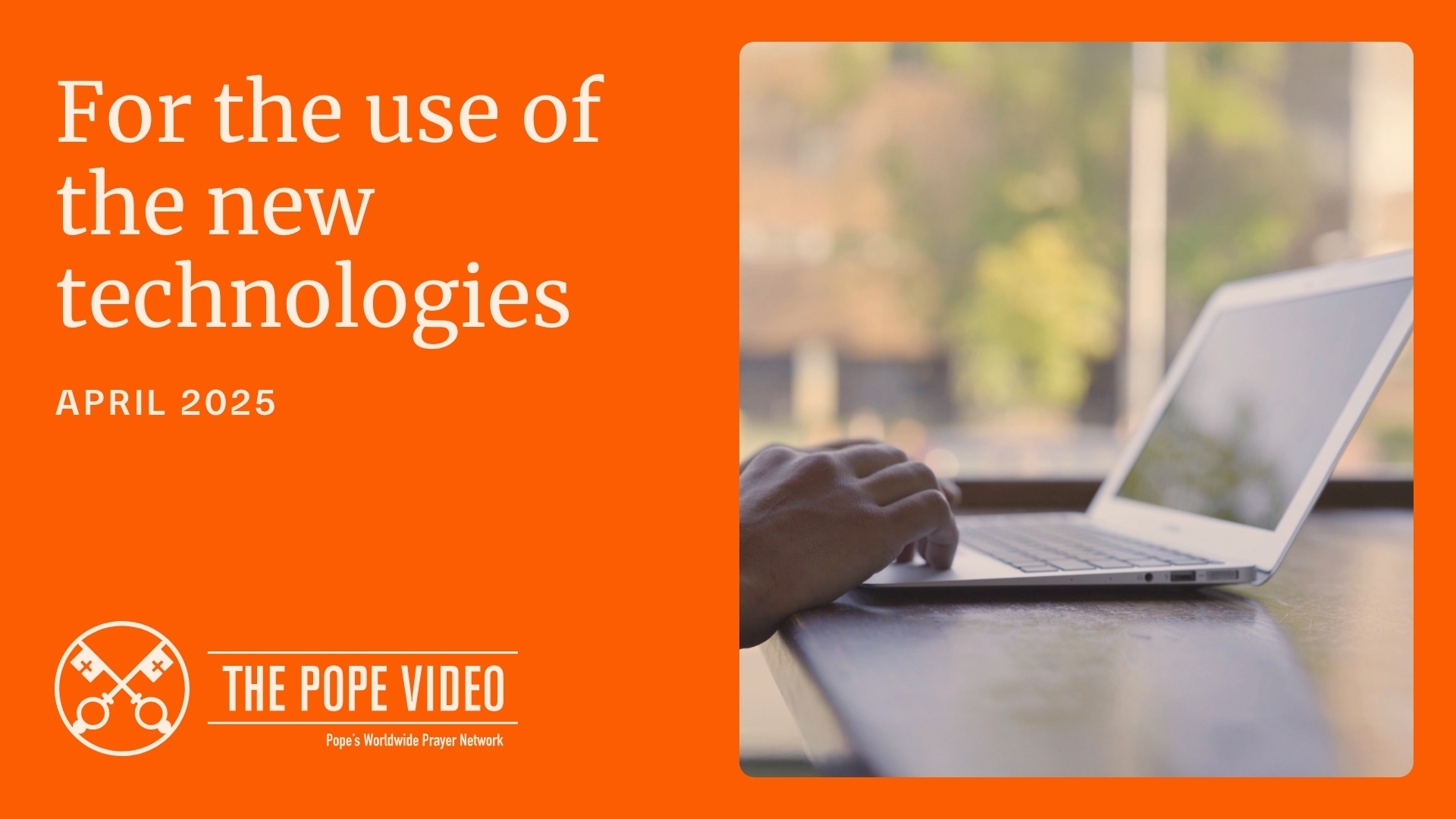In the video illustrating his prayer intention for the month of April, the Pope asks that we pray “that the use of the new technologies will not replace human relationships, will respect the dignity of the person, and will help us face the crises of our times.”
Pope Francis advocates putting technology at the service of every person, especially the weakest, and for taking care of the earth. “Something’s wrong if we spend more time on our cell phones than with people.”
Pope Francis’s prayer intention for the month of April is dedicated to the new technologies. The Pope requests prayers so “that the use of the new technologies will not replace human relationships, will respect the dignity of the person, and will help us face the crises of our times.” This is an extremely pertinent topic that affects us all, especially due to the enormous extension of social media networks and the dizzying development of Artificial Intelligence.
Technology at the service of the human person
His prayer intention is illustrated in the video message produced by the Pope’s Worldwide Prayer Network, with the help this month of Coronation Media and in collaboration with the Dicastery for Promoting Integral Human Development. In it, Pope Francis emphasizes that “technology is the fruit of the intelligence God gave us.” However, if it is not used well, it can produce negative effects. Among them, the Pope alludes to isolation and the lack of authentic relationships: “Something’s wrong if we spend more time on our cell phones than with people.” Cyberbullying and hatred manifested on social media networks are other major risks since “the screen makes us forget that there are real people behind it who breathe, laugh, and cry.” The Pope likewise warns that technology should not “benefit only a few while excluding others” since this would be one more cause for increasing economic, social, labor, educational, and other inequalities.
To avoid these dangers, Pope Francis invites us to place technology at the service of the human person, using it to unite people, to help those in need, to improve the lives of the sick and persons with different abilities, to foster a culture of encounter and to protect our planet.
Lastly, he touches on how the new technologies should not alienate us from others and from reality. This is why in his video message the Pope asks that we “look less at screens” to “look each other in the eyes more.” In this way, we would be able to “discover what really matters: that we are brothers, sisters, children of the same Father,” and act accordingly.
An ethical approach
Cardinal Michael Czerny, Prefect of the Dicastery for Promoting Integral Human Development, echoes Pope Francis’s words. “The new technologies,” he affirms, “are an important resource and tool at the service of the human family. Their use must be directed toward the respect and dignity of basic human rights if they are to be at the service of development. Let us unite ourselves to the Holy Father’s appeal so that digital progress might constitute a gift for humanity, respecting the dignity of each person, for justice and the common good.”
The International Director of the Pope’s Worldwide Prayer Network, Father Cristóbal Fones, explains that in the video, “Pope Francis wants to remind us that the responsible use of technology means putting it at the service of the human person and of creation. Used in this way, it can also be a means for giving glory to God since our capabilities and creativity come from Him. Similarly, the ethical use of the new technologies helps in the care of creation, in the protection of the dignity of the human person and in improving lives.”
On this point, Father Fones mentions other advances such as easier access to an infinity of educational resources online; telemedicine/telehealth, software used in healthcare and new diagnostic tools; software that improves communication and allows us to maintain contact around the world, even allowing teams to work together across distances; recycling technologies and renewable energy…. “Technology can be a powerful tool for addressing global crises such as poverty and climate change,” he states.
But the ethical use of technology “first of all requires that we look at others with the eyes of the heart, that we establish friendly relationships with them, which is what the Pope invites us to do,” Father Fones continues. “Respect for the dignity of every person and the common good are the principles that should guide us when discerning how and for what purpose to use technology.”
Lastly, “Pope Francis urges us to develop a critical awareness about how we use the new technologies and the effects they have on our own lives and on society. He also encourages us to use new technologies responsibly, and to promote their responsible use, so they foster integral human development for everyone, especially the most disadvantaged.”



